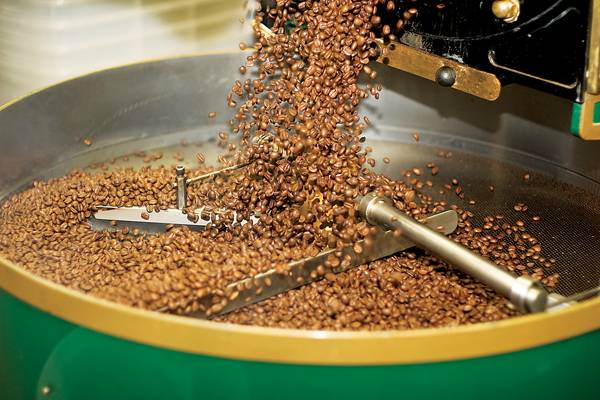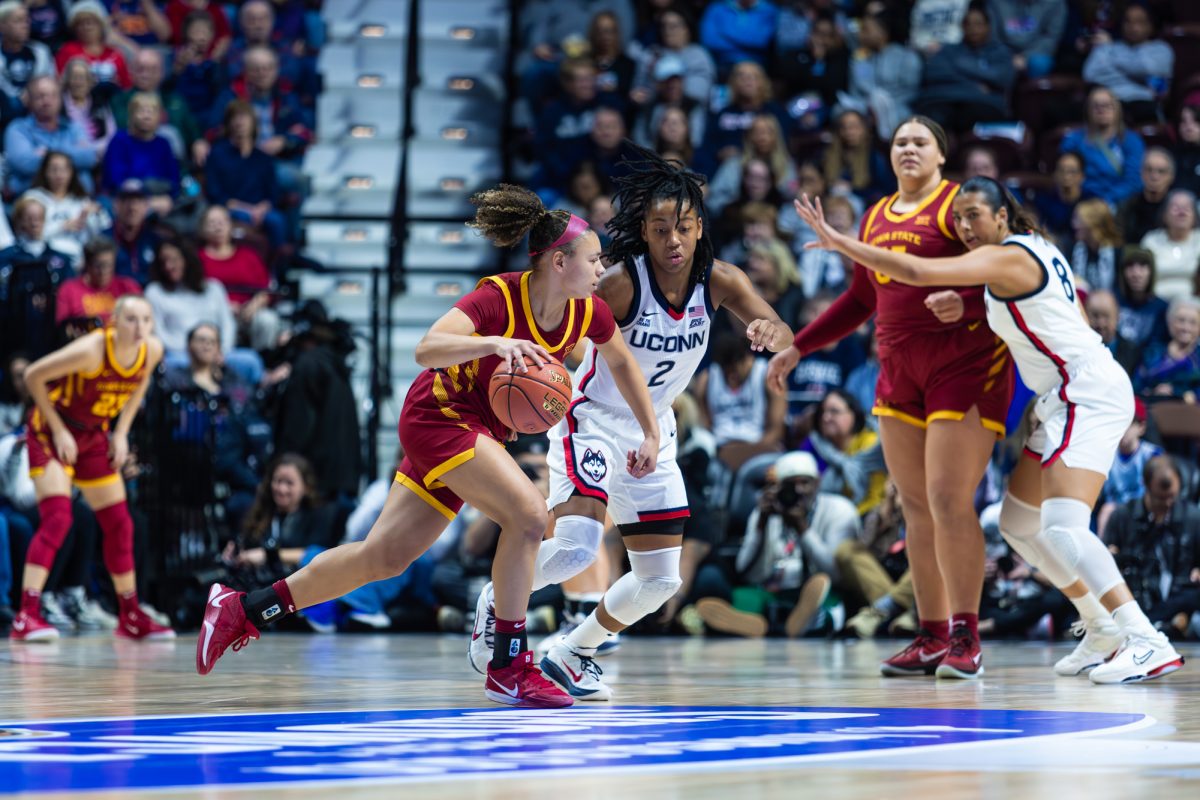A perfect blend

An Ethiopian variety of coffee bean roasts Sunday July 26, 2009 at the Burgie’s Roasterie on University Boulevard. Debora Boekholder, head roaster, said they roast the coffee because coffee beans have no flavor or aroma before being exposed to heat. Each bean develops a unique flavor based on how much heat it receives and how long it is exposed. Photo: Rashah McChesney/Iowa State Daily
July 26, 2009
At Burgie’s everyone has a story worth telling.
“That’s our company slogan,” said Steve Burgason, owner of the Ames coffee company. “Part of our mission is to help people discover new stories in their lives.”
But in doing so, he’s developed a story all his own . A story that involves coffee, business and making a difference.
Born and raised in Ames, Burgason graduated from Iowa State in 1978 and moved to Vienna to minister as part of a Christian basketball team.
Along the way, he discovered a new passion for coffee.
“Vienna is one of the great coffee cities in the world,” Burgason said. “We fell in love with the café culture.”
Then in 1991, while visiting Java Joe’s in Des Moines, Burgason decided he wanted to make a go at a career in coffee.
He started visiting cafés for research, and bought a book about running a successful coffee cart business.
This culminated in the launch of a Burgie’s coffee cart in North Grand Mall. But much more was in store for the business.
Today, Burgason owns two cafés, and their associated gas stations — the Conoco at 110 Airport Road, and the Phillips 66 at 2400 University Boulevard — as well as a café embedded in Mary Greeley hospital.
The company also roasts its own coffee beans.
“It was part of our original vision when we built South Gate,” Burgason said. “We put a hole in the ceiling to remind ourselves, ‘we’re gonna roast beans someday.’”
But cafés and beans are only half of the story for Burgason — the other half is the way — guided by his faith — his company has been involved in humanitarian projects.
“I use our cafés as a business that gives us an
opportunity to promote things that we believe in,” Burgason said.
One of Burgie’s biggest projects has been involvement with Global Builders.
The project buys coffee directly from Ugandan coffee growers, which Burgie’s roasts, and sells to help send Ames students to Uganda to help build schools and orphanages.
“$2.50 of that pays for airline tickets, and $2.50 of that pays for brick and mortar,” Burgason said.
When it comes to helping out growers in developing nations, such a business relationship is even fairer than fair trade, Burgason said.
“We call it direct trade-relationship coffee,” Burgason said. “More money gets to [them with] direct trade.”
Relationship-based business helps connect growers with the businesses selling their product.
“We went there — actually went up to the mountain and met the growers there,” Burgason said.
So to Burgason, it’s more than a cup of morning joe — it’s a chance to make a difference. And he doesn’t understate its ability to do so.
“It’s the second largest traded commodity in the world,” Burgason said. “$100 billion a year.”






